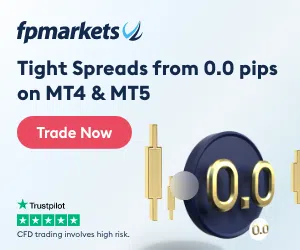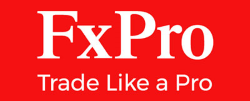For over a decade, FxScouts.co.za has been reviewing forex brokers and provided in-depth analyses. Our extensive research and unique testing methodology ensures that all broker reviews are accurate and fair with hundreds of thousands of data points generated annually. Since 2012, we’ve tested over 180 brokers across global and South African markets. Our team of professionals are frequently cited in global and regional media, shaping market conversations and trends.
-
Best Forex Brokers
Our top-rated Forex brokers
-
Brokers for Beginners
Start trading here
-
Forex Demo Accounts
Learn to trade with no risk
-
ZAR Trading Accounts
Save on conversion fees
-
Lowest Spread Brokers
Raw spreads & low commissions
-
ECN Brokers
Trade with Direct Market Access
-
No-deposit Bonuses
Live trading with no deposit
-
High Leverage Brokers
Extend your buying power
-
Islamic Account Brokers
Best accounts for Muslim traders
-
Market Maker Brokers
Fixed spreads & instant execution
-
All Trading Platforms
Find a platform that works for you
-
TradingView Brokers
The top TradingView brokers
-
MetaTrader4 Brokers
The top MT4 brokers in SA
-
MetaTrader5 Brokers
The top MT5 brokers in SA
-
cTrader Brokers
The top cTrader brokers in SA
-
Forex Trading Apps
Trade on the go from your phone
-
Copy Trading Brokers
Copy professional traders
75-90% of retail traders lose money trading Forex and CFDs. You should consider whether you understand how CFDs and leveraged trading work and if you can afford the high risk of losing your money. We may receive compensation when you click on links to products we review. Please read our advertising disclosure. By using this website, you agree to our Terms of Service.
The best CySEC regulated Forex brokers for 2024
Broker | Broker Score | Official Site | CySEC License | Min. Deposit | Max. Leverage (Forex) | Beginner Friendly | EUR/USD - Standard Spread | Cost of Trading | EUR/USD - Raw Spread | Total CFDs | Currency Pairs | Platforms | Compare |
|---|---|---|---|---|---|---|---|---|---|---|---|---|---|
 | 4.40 /5 Read Review | Visit Broker > 79% of retail CFD accounts lose money | 371/18 | AUD 100 | 500:1 | Excellent | 0.00 pips | USD 6 | 0 pips | 10162 | 70 | MT4, MT5, cTrader, IRESS | |
4.37 /5 Read Review | Visit Broker > 67.65% of retail CFD accounts lose money | 372/18 | USD 25 | 1000:1 | Excellent | 0.60 pips | USD 6 | 0.60 pips | 253 | 52 | MT4, MT5, OctaTrader | ||
4.37 /5 Read Review | Visit Broker > 71% of retail CFD accounts lose money | 357/18 | EUR 100 | 500:1 | Excellent | 0.70 pips | USD 7 | 0.40 pips | 905 | 73 | MT4, cTrader, Skilling Trader | ||
 | 4.45 /5 Read Review | Visit Broker > 75.33% of retail CFD accounts lose money | 120/10 | USD 5 | 1000:1 | Excellent | 0.60 pips | USD 6 | 0.60 pips | 1554 | 57 | MT4, MT5 | |
4.39 /5 Read Review | Visit Broker > 71.58% of retail CFD accounts lose money | 078/07 | USD 100 | 200:1 | Excellent | 1.40 pips | USD 14 | 0.40 pips | 2241 | 70 | MT4, MT5, cTrader, FxProEdge | ||
4.39 /5 Read Review | Visit Broker > 80% of retail CFD accounts lose money | 169/12 | USD 0 | 500:1 | Excellent | 0.70 pips | USD 7 | 0.70 pips | 5211 | 57 | xStation5 | ||
 | 4.33 /5 Read Review | Visit Broker > 69.21% of retail CFD accounts lose money | 331/17 | USD 5 | 3000:1 | Excellent | 0.80 pips | USD 7 | 0.70 pips | 573 | 72 | MT4, MT5, FBS App | |
 | 4.61 /5 Read Review | Visit Broker > 89%74- of retail CFD accounts lose money | 388/20 | USD 0 | 400:1 | Excellent | 1.00 pips | USD 10 | 0.17 pips | 1275 | 100 | MT4, MT5, cTrader, TradingView | |
 | 4.58 /5 Read Review | Visit Broker > 70% of retail CFD accounts lose money | 278/15 | USD 100 | 1000:1 | Excellent | 0.00 pips | USD 6 | 0.10 pips | 210 | 62 | MT4, MT5 | |
 | 4.53 /5 Read Review | Visit Broker > 72.90% of retail CFD accounts lose money | 183/12 | ZAR 0 | 2000:1 | Excellent | 1.00 pips | USD 10 | 0.10 pips | 1230 | 53 | MT4, MT5, HFM Trading App |
CySEC is the financial regulatory agency of Cyprus. CySEC regulates all brokers based in the EU.
How to compare CySEC-regulated brokers
CySEC is a tier 2 financial regulatory agency from Europe. Generally speaking, CySEC-regulated brokers can be considered safe. Still, some few CySEC-regulated brokers have a history of controversy, and the regulator has only taken limited action on behalf of clients and partners. But it is essential to look at the detail of each broker to find out what differentiates them from each other. When comparing CySEC-regulated brokers consider:
Regulation: While your broker is CySEC regulated, your trading account may not be. It is increasingly common for CySEC-regulated brokers to onboard clients onto a different license where trading conditions, like leverage, can be increased without CySEC oversight. While this is not fundamentally bad, the trader should know their trading account is regulated and that CySEC will not enforce their regulations in overseas territories. If you value the regulatory oversight of CySEC, don’t trade that for adjusted trading conditions.
Platform choice: Traders have a wide range of industry platforms to choose from, each with pros and cons. When comparing brokers, always consider the platform options, as unique features or a wide variety of platforms could change your trading experience.
Trading costs: Every broker will charge for their services, but each will have different pricing models and costs. While ECN brokers will charge a smaller spread combined with a commission based on volume, market maker brokers will charge a wider spread. We compare brokers by looking at what 1 lot of EURUSD costs to trade and would encourage traders to do the same in comparing costs.
MetaTrader 4 is still the industry standard, but many brokers offer MetaTrader 5 and their proprietary platforms. ECN/STP brokers will often support cTrader as it is built specifically for market execution and only allows for minimal broker interference.
Minimum Deposit: The minimum deposit could change by account type, with higher minimum deposits often linked to better conditions. Always consider the minimum deposit specific to the account type you may open.
Deposit and Withdrawal Methods: Most brokers accept credit cards and bank transfer payments, many accept online payments through Skrill and Neteller, and some will also accept Bitcoin. Always check the withdrawal fees before making a deposit.
FP Markets – Fastest Trade Execution
FP Markets is a leading CySEC-regulated CFD broker offering trading on both the MT4, MT5, cTrader and TradingView trading platforms. In addition to providing super-fast execution speeds over a dedicated fibre-optic line, it offers versions of the platforms for alternate operating systems, including Mac OS and WebTrader. Traders also have access to institutional-grade liquidity from multiple execution venues, with no price manipulation, no dealing desk intervention, and no requotes or rejections.
Trading conditions at FP Markets are generally excellent, with tighter than average spreads on two live accounts. The commission-free Standard Account offers spreads starting at 1.0 pips on the EUR/USD and spreads as tight as 0 pips (EUR/USD) on its Raw Account in exchange for a commission of 6 USD (round turn) per lot.
Octa – Lowest Trading Fees
A popular CySEC-regulated broker, Octa offers trading on multiple assets, including Forex, metals, energies, indices, cryptocurrencies, and shares. It offers three simple accounts on the MT4, MT5, and OctaTrader platforms, very low trading costs, no fees for deposits and withdrawals, and a great copy trading service.
All Octa accounts are market execution, and spreads are highly competitive, averaging at 0.6 pips (EUR/USD) with no commissions for Forex trading. The minimum deposit requirement across all accounts is only 25 USD, and it offers leverage of up to 1000:1 on Forex pairs. Octa also offers a wide range of bonuses and promotions – a 50% deposit bonus for each deposit and demo contests with cash prizes are available.
Skilling – Most Innovative cTrader Broker
Regulated by CySEC since 2018 and renowned for its transparency and dedication to customers, Skilling is also one of our favourite cTrader brokers. With two cTrader accounts, one aimed at beginners and the other at more experienced traders, Skilling is also the first broker in the world to have full cTrader integration with its own trading platform. The one account, two platforms approach allows traders to move seamlessly between cTrader and Skilling Trader – both on desktop and mobile.
Skilling’s Standard Account requires a minimum deposit of 100 EUR, and offers maximum leverage of 500:1. Spreads here start at 0.80 pips on the EUR/USD. No commission is charged. For more experienced traders, the Premium Account is a commission-based, raw spreads account, with spreads starting at 0.1 pips, 3 USD/lot commission charged. But the minimum deposit is 5000 EUR, so this is probably not an account for beginner traders.
XM – Worldclass Education
XM is a CySEC-regulated market maker broker with an excellent repository of educational and market analysis materials. XM’s educational content focuses on video instruction, aimed at traders of all experience levels – beginner, intermediate, and advanced. XM also provides daily interactive instruction via webinars that are available daily from 08.30 – 16.00 GMT, Monday to Friday. Topics range from the basics of Forex trading, to learning how to use multiple time frame techniques with real-time simulated trading conditions. All webinars are hosted by industry expert analysts.
XM also offers competitive trading conditions on four live accounts. Minimum deposits start at 5 USD on its entry-level account with a spread of 1.6 pips on the EUR/USD, which is wider than other market makers. Trading costs improve on its Zero Account, with spreads as tight as 0 pips in exchange for a commission of 7 USD round turn. All accounts offer a maximum leverage of up to 500:1.
FXPro – Great Range of Account Types
FxPro is a leading CySEC-regulated market maker broker with no dealing desk intervention. With full support for the MT4, MT5, and cTrader platforms, FxPro provides low latency, fast execution on four account types. Most trades are filled in under ten milliseconds, and trades are executed at one of FxPro’s Equinox Data Centres in either London or Amsterdam.
At FxPro, each account type is associated with a different platform. On the MT4 and MT5 accounts, spreads average at 1.84 pips and 1.65 pips on the EUR/USD, respectively which is higher than other similar brokers. Spreads tighten significantly on the cTrader account, averaging at 0.31 pips on the EUR/USD in exchange for a commission of 9 USD round turn per lot traded. FxPro also employs a dynamic leverage model which adapts according to the volume traded.
XTB – Easy-to-use In-house Platform
XTB is a CySEC-regulated STP broker that offers trading on multiple trading instruments, including Forex, indices, commodities, stock CFDs, and cryptocurrencies. Following a recent decision to move away from MT4, XTB only offers support for its proprietary award-winning proprietary platform, xStation 5. It offers many of the trading features found in MetaTrader4, introducing sentiment data directly into the platform, powerful charting tools, one-click trading, and real-time performance statistics.
XTB only offers trading on a single commission-free market execution account with no minimum deposit requirements, leverage of up to 500:1, and spreads that start at 0.80 pips on the EUR/USD which is tighter than other STP brokers.
FBS – CySEC Broker with Lowest Deposit Accounts
CySEC-regulated since 2017, FBS is a large international broker with low minimum deposits and two beginner-friendly low-risk accounts. Well-regulated around the world, FBS also holds licences from the FSCA in South Africa, ASIC in Australia, and the FSC in Belize.
The Cent Account has a minimum deposit of 1 USD, the Micro Account is 5 USD, and the Standard Account is 100 USD. FBS has 100 cryptocurrency pairs to trade at leverage of 5:1. Cryptocurrencies available include Bitcoin, Ethereum, Litecoin, Dogecoin and Ripple – and many of the less common crypto coins too. FBS is also one of the better brokers in terms of education and market analysis. The education section is helpful and well-structured, and market analysis is frequent and well-explained.
Pepperstone – Best ECN CFD Broker
Pepperstone is a leading CySEC-regulated ECN/STP broker offering trading on over 180 assets, including Forex, indices, shares, commodities, cryptocurrencies, and currency indices. Pepperstone offers full support for the MT4, MT5, and cTrader platforms which provides high-speed execution and low-latency trading.
Pepperstone’s trading conditions are among the most competitive in the industry. With two live accounts on offer, a Standard commission-free account with spreads starting at 1.00 pips on the EUR/USD, and a Razor Account with spreads that average at 0.10 pips in exchange for a reasonable commission of 7 USD (round turn) per trade. Pepperstone also provides award-winning customer service, available 24/7, and is an excellent educational repository, making it a good choice for beginner traders.
Tickmill – ECN Broker with Lowest Commission
Tickmill is an ECN broker with regulation from numerous authorities, including CySEC and the South African FSCA. It offers local customer support, ZAR accounts, and a no-deposit bonus for new clients. Assets available to trade include Forex, stock, oil, precious metals, and bonds. Tickmill has won many awards for its excellent trading conditions, especially its low commissions.
Tickmill offers three live accounts in addition to a demo account. Spreads start at 1.6 pips on its commission-free Classic Account, which a wider than other ECN brokers, but tighten to 0.1 pips on its Pro Account in exchange for a very low commission of 2 USD per side per lot. Minimum deposits are reasonable, starting at 100 USD/1600 ZAR, and traders are offered leverage of up to 500:1. Tickmill only supports the MT4 and MT5 platforms, but it offers lightning-fast execution and low latency trading.
HFM (Hotforex) – Excellent Forex Analysis App
A CySEC-regulated ECN/STP broker, HFM offers trading on multiple assets, including Forex, metals, energies, indices, and shares. HFM offers full support for the MT4 and MT5 platforms and numerous trading tools, including Autochartist, VPS services, Premium Trading Tools, and its proprietary HF App. The HF App helps traders to understand the markets with trading tools and the latest news, updates, and financial analysis.
The HF App’s analysis tools include Daily Market Analysis, which allows traders to stay on top of market events, a Trading Positions feature, which allows you to track how other traders are reacting to currency and commodity movements, and a Traders’ Board with information on currency movers and live charts of major pairs. The HF App also allows traders to deposit and withdraw funds, apply technical indicators, copy trade, and create watchlists.
Broker Regulation and Why it’s Important
Regulators are essential in all financial markets because they set the rules that guarantee a level playing field. They also enforce those rules by requiring members to submit regular reports and have independent audits, most good regulators will also have an investigations department and will conduct unannounced visits to regulated companies to ensure day-to-day operations are compliant. Regulators also have the power to impose penalties on members, including fines, sanctions and even revoking a company’s operating licence, thereby putting them out of business.
What is interesting about the Forex market is that there is no legal requirement for brokers to be regulated. CFD Forex trading is an Over the Counter (OTC) derivatives market – this means that there is no central exchange and no overall regulator with oversight for the market.
Having a wholly unregulated market is a bad idea and leads to massive consumer fraud, as happens on a smaller scale in regions with poorly regulated local Forex industries. Instead of having a single regulator, countries and regions regulate the brokers who reside in their territory. As each regulator has different abilities and priorities, Forex regulation is not uniform, and brokers must abide by different rules depending on which country/countries they are legally resident.
What is CySEC?
CySEC is the financial regulatory agency of Cyprus. CySEC regulates all brokers based in the EU. It was founded in 2001 and when Cyprus joined the EU in 2004 CySEC became part of the pan-European MiFID (Markets in Financial Instruments Directive). MiFID is an EU law the harmonises regulation for financial services across the member states, allowing for financial firms registered in one state to essentially have a “passport” to operate in all the other EU states.
In terms of the Forex industry, this means that any Forex broker registered in Cyprus can market to, and accept business from, all EU citizens.
As the Cyprus financial regulator, CySEC has many crucial obligations in the financial sector – most of them outside the Forex industry – these are:
- To review applications for and provide operating licenses to supervised financial companies – and revoke these if necessary.
- To supervise and regulate the operation of and all transactions on the Cyprus Stock Exchange
- To carry out all necessary investigations in view of the exercise of its duties under the law as well as on behalf of other foreign competent Authorities.
- To impose administrative and disciplinary sanctions provided by the law.
- To issue regulatory Directives and Decisions.
- To cooperate and exchange data and information with foreign supervisory authorities.
What is CySEC’s role in forex trading?
CySEC ensures that Forex brokers treat their clients fairly. They must have segregated bank accounts, submit regular financial compliance reports to CySEC, and provide compensation of up to 20,000 EUR to protect traders against broker-related matters.
How CySEC protects Forex traders
Most Forex brokers in Europe are based in Cyprus and are subject to CySEC’s regulations, so it follows that many millions of Forex traders are directly impacted not only by CySEC’s rules but also by how well they enforce them. The most important regulatory benefits for customers of a CySEC-regulated broker are as follows:
- Segregated Funds: All trader funds are kept in a segregated trust account which the broker cannot access. This prevents the broker from using trader funds for operational purposes. It also ensures that in the case of broker bankruptcy, trader funds can be returned.
- Capital Adequacy: CySEC requires all regulated brokers to hold enough capital to meet the capital adequacy ratio requirement. This decreases the likelihood of broker failure in the event of significant losses.
- Reports and Auditing: Because brokers are required to submit regular financial compliance reports to CySEC, it is very difficult for brokers to hide any wrongdoing. Similarly, because these brokers are also subject to independent audits and visits from CySEC investigators, any malfeasance will be exposed.
- Compensation Fund: All CySEC-regulated brokers are required to join the Investor Compensation Fund Scheme. Under this scheme, traders are liable for compensation up to 20,000 EUR in the case of broker bankruptcy.
- Insurance Coverage: CySEC demands that all licenced brokers maintain insurance coverage of at least 1.5 million EUR for losses resulting from negligence.
- Transparency: CySEC expects to have a complete overview of all products that a broker is planning to offer, and that these products are the same as the products offered to clients.
These protections are enshrined in regulatory law and brokers who are found to be in contravention are penalised and can even have their operating licence removed altogether.
A useful resource for traders, CySEC hosts an up-to-date list of brokers that are legally allowed to operate in their jurisdiction, if you are concerned that a broker may be operating illegally, check CySEC’s regulated entities list.
CySEC also publishes warnings on unregulated brokers operating illegally, many illegal brokers will often disguise themselves as regulated brokers so it is important to check here if you are concerned.
Why Trade with a CySEC-Regulated Broker?
CySEC is a modern and well-funded organization and often the first to make regulatory changes needed to protect would-be traders and maintain fairness in the CFD industry.
CySEC and ESMA: Restrictions on Trading Conditions
In March 2018, the European Securities Markets Authority (ESMA – an EU task force that examines EU-wide financial risk) announced new regulations on all CFD trading in the EU; these regulations were a directive at the supranational level – meaning that all EU members were required to abide by the regulations and enshrine them in domestic law.
Cyprus, as an EU member state, must also abide by this new set of regulations, and all CySEC-regulated brokers will have the following restrictions as a result:
- Leverage Restriction: Maximum leverage of 30:1 on major currency pairs, 20:1 on all other pairs, 5:1 on equities, 2:1 on cryptocurrencies
- Negative Balance Protection: All brokers must guarantee negative balance protection for all traders
- No Bonus: All bonuses, promotions or any other type of trading incentive are banned
- Margin Call: Brokers will be required to close a client’s open positions when the account equity reaches 50% of the required minimum margin by all open positions.
- Risk Warning: All brokers will be required to display a standard risk warning showing what percentage of clients lose money with them.
While traders and brokers were unhappy with the restriction on leverage, industry experts agree that the new ESMA regulations protect traders from making huge losses without critically damaging broker profits.
CySEC vs FCA
The Financial Conduct Authority is the United Kingdom’s financial regulator and is generally upheld as the best and strictest national regulatory authority in the world. Most good brokers will be regulated either by CySEC, the FCA or sometimes both.
On paper, there is little difference between CySEC or FCA regulation – though the licencing fee for CySEC brokers is only 7,000 EUR, compared to 25,000 GBP for the FCA. Aside from that, both regulators require segregated accounts, membership of a compensation fund and have high capital adequacy standards. All brokers regulated by both authorities will have the same leverage restrictions and other constraints required by the ESMA regulation – though whether this continues to remain the case once the United Kingdom leaves the EU remains to be seen.
The differences between the two regulators are mainly anecdotal, while the FCA is seen as unimpeachable when it comes to protecting consumers and being tough on brokers, many traders complain that CySEC is too broker-friendly and that it gives away operating licences too easily. CySEC also has a history of being easy on badly behaved brokers, with industry commentators noting that fines being levied by CySEC tended to be smaller than those handed out by other EU regulatory organizations.
But since 2016, CySEC has made sweeping changes to both the registration and regulation processes of all registered entities. Changes include more transparency regarding existing listed entities, tougher fines and regular unannounced onsite visits from CySEC investigators to check compliance. This has led to a surge in broker suspensions and license revoking and CySEC is gradually losing its image as a light-touch regulator.
Which is the best CySEC-regulated broker?
HFM is the best CySEC-regulated broker. It has a huge range of financial assets, great trading platforms, numerous trading tools, and an innovative trading app.
All CySEC Brokers
This is our list of all CySEC-regulated brokers we have reviewed. They are ordered by their overall rating, placing the best overall broker at the top of the list.
Broker | Broker Score | CySEC Licence | Regulators | Beginner Friendly | Platforms | Min. Deposit | Cost of Trading | Fees | No. of FX Pairs | Compare |
|---|---|---|---|---|---|---|---|---|---|---|
4.68 /5 Read Review | 092/08 |     | Excellent | MT4, MT5, markets.com | ZAR 1500 | USD 7 | Fees Included in Spread | 56 | ||
4.62 /5 Read Review | 400/21 |      | Excellent | MT4, MT5, FOREX.com Web Trader, TradingView | USD 100 | USD 7 | Fees Included in Spread | 91 | ||
 | 4.61 /5 Read Review | 388/20 |      | Excellent | MT4, MT5, cTrader, TradingView | USD 0 | USD 10 | From 7 USD / lot - Razor Account | 100 | |
 | 4.59 /5 Read Review |        | Excellent | MT4, MT5, Avatrade Social, AvaOptions | ZAR 1900 | USD 9 | Fees Included in Spread | 63 | ||
 | 4.58 /5 Read Review | 278/15 |       | Excellent | MT4, MT5 | USD 100 | USD 6 | 6 USD/lot | 62 | |
4.53 /5 Read Review | 246/14 |     | Excellent | MT4, MT5, TradingView | AUD 100 | USD 10 | 7 USD / lot | 55 | ||
 | 4.53 /5 Read Review | 183/12 |       | Excellent | MT4, MT5, HFM Trading App | ZAR 0 | USD 10 | 6 USD / lot - Zero Account | 53 | |
 | 4.46 /5 Read Review | 362/18 |     | Excellent | MT4, MT5, cTrader, TradingView | USD 200 | USD 8 | 7 USD / lot - Raw Spread Account | 64 | |
 | 4.45 /5 Read Review | 120/10 |      | Excellent | MT4, MT5 | USD 5 | USD 6 | Fees Included in Spread | 57 | |
 | 4.44 /5 Read Review | 433/23 |       | Excellent | MT4 | USD 5 | USD 10 | 7 USD / lot - PRO account | 70 | |
 | 4.40 /5 Read Review | 371/18 |      | Excellent | MT4, MT5, cTrader, IRESS | AUD 100 | USD 6 | 6 USD / lot - RAW Accounts | 70 | |
4.39 /5 Read Review | 169/12 |      | Excellent | xStation5 | USD 0 | USD 7 | Fees Included in Spread | 57 | ||
4.39 /5 Read Review | 078/07 |      | Excellent | MT4, MT5, cTrader, FxProEdge | USD 100 | USD 14 | 9 USD / lot | 70 | ||
 | 4.38 /5 Read Review | 392/20 |      | Excellent | MT4, TradeStation | USD 50 | USD 6 | None | 43 | |
4.37 /5 Read Review | 372/18 |    | Excellent | MT4, MT5, OctaTrader | USD 25 | USD 6 | Fees Included in Spread | 52 | ||
4.37 /5 Read Review | 357/18 |   | Excellent | MT4, cTrader, Skilling Trader | EUR 100 | USD 7 | 6 USD round turn commission | 73 | ||
 | 4.33 /5 Read Review | 331/17 |    | Excellent | MT4, MT5, FBS App | USD 5 | USD 7 | Fees Included in Spread | 72 | |
4.28 /5 Read Review | 201/13 |       | Excellent | MT4, MT5 | ZAR 500 | USD 8 | 1.8 - 3 USD per lot | 82 | ||
4.12 /5 Read Review | 259/14 |       | Standard | MT4, MT5 | USD 100 | USD 12 | 8 USD / lot - Raw Account | 70 | ||
 | 4.02 /5 Read Review | 079/07 |     | Standard | MT4, MT5 | USD 25 | USD 18 | Fees Included in Spread | 63 | |
3.93 /5 Read Review | 155/11 |        | Standard | MT4, MT5 | USD 50 | USD 14 | 3 USD / lot | 66 | ||
3.88 /5 Read Review | 121/10 |  | Standard | MT4 | USD 0 | USD 6 | None | 71 | ||
3.87 /5 Read Review | 383/20 |   | Standard | MT4, MT5 | USD 50 | USD 15 | Fees Included in Spread | 50 | ||
 | 3.80 /5 Read Review | 202/13 |     | Standard | MT5, Sirix | USD 250 | USD 40 | Fees Included in Spread | 48 | |
3.70 /5 Read Review | 127/10 |  | Standard | MT5 | USD 100 | USD 20 | 50 | |||
3.68 /5 Read Review | 204/13 |   | Standard | MT4, MT5, NAGA Web App | USD 250 | USD 17 | Fees Included in Spread | 47 | ||
 | 3.64 /5 Read Review | 25/10 |     | Standard | MT4 | USD 50 | USD 22 | On select STP/ECN Accounts | 83 | |
3.63 /5 Read Review | 209/13 |   | Standard | MT4 | USD 10 | USD 20 | 0,007% / Trade - Zero Account | 33 | ||
 | 3.60 /5 Read Review |    | Standard | MT4, MT5 | USD 5 | USD 5 | None | 49 | ||
3.60 /5 Read Review | 118/10 |      | Standard | MT4, MT5, cTrader | USD 0 | USD 6 | 6 USD / lot | 43 | ||
 | 3.53 /5 Read Review | 344/17 |   | Standard | MT5 | USD 500 | USD 16 | Fees Included in Spread | 49 | |
 | 3.52 /5 Read Review |   | Standard | MT4, MT5 | USD 500 | USD 7 | 5 USD / lot | 42 | ||
3.52 /5 Read Review | 227/14 |    | Standard | MT4, MT5, Sirix | USD 100 | USD 19 | Fees Included in Spread | 55 |
Which is the best CySEC-regulated broker?
HFM is the best CySEC-regulated broker. It has a huge range of financial assets, great trading platforms, numerous trading tools, and an innovative trading app.
Conclusion
As the regulator with the most EU registered brokers, CySEC has a critical role in the Forex industry and millions of traders rely on their ability to ensure a fair trading environment.
While in the past, this ability has been questioned, currently CySEC is seen as a leader in the Forex regulatory world and brokers with CySEC regulation should be considered safe and secure places for trading.
Forex Risk Disclaimer
Trading Forex and CFDs is not suitable for all investors as it carries a high degree of risk to your capital: 75-90% of retail investors lose money trading these products. Forex and CFD transactions involve high risk due to the following factors: Leverage, market volatility, slippage arising from a lack of liquidity, inadequate trading knowledge or experience, and a lack of regulatory protection. Traders should not deposit any money that is not considered disposable income. Regardless of how much research you have done or how confident you are in your trade, there is always a substantial risk of loss. (Learn more about these risks from the UK’s regulator, the FCA, or the Australian regulator, ASIC).
Our Rating & Review Methodology
Our Broker Awards and Forex Rankings Report and Directory of CFD Brokers to Avoid are the result of extensive research on over 180 Forex brokers. These resources help traders find the best Forex brokers – and steer them away from the worst ones. These resources have been compiled using over 200 data points on each broker and over 3000 hours of research. Our team conducts all research independently: Testing brokers, gathering information from broker representatives and sifting through legal documents. Learn more about how we rank brokers.
Editorial Team

Chris Cammack
Head of Content
Chris joined the company in 2019 after ten years experience in research, editorial and design for political and financial publications. His background has given him a deep knowledge of international financial markets and the geopolitics that affects them. Chris has a keen eye for editing and a voracious appetite for financial and political current affairs. He ensures that our content across all sites meets the standards of quality and transparency that our readers expect.

Alison Heyerdahl
Senior Financial Writer
Alison joined the team as a writer in 2021. She has a medical degree with a focus on physiotherapy and a bachelor’s in psychology. However, her interest in forex trading and her love for writing led her to switch careers, and she now has over eight years experience in research and content development. She has tested and reviewed 100+ brokers and has a great understanding of the Forex trading world.

Ida Hermansen
Financial Writer
Ida joined our team as a financial writer in 2023. She has a degree in Digital Marketing and a background in content writing and SEO. In addition to her marketing and writing skills, Ida also has an interest in cryptocurrencies and blockchain networks. Her interest in crypto trading led to a wider fascination with Forex technical analysis and price movement. She continues to develop her skills and knowledge in Forex trading and keeps a close eye on which Forex brokers offer the best trading environments for new traders.
Stay updated
This form has double opt in enabled. You will need to confirm your email address before being added to the list.






































